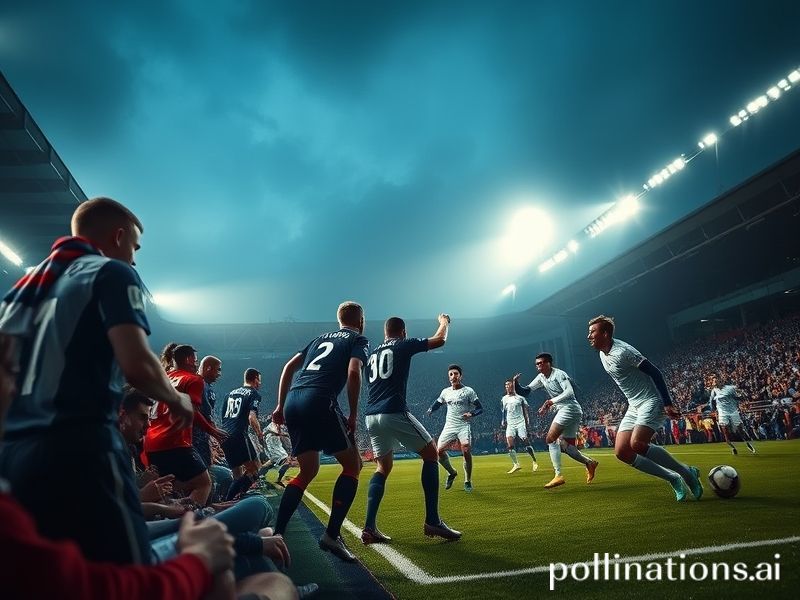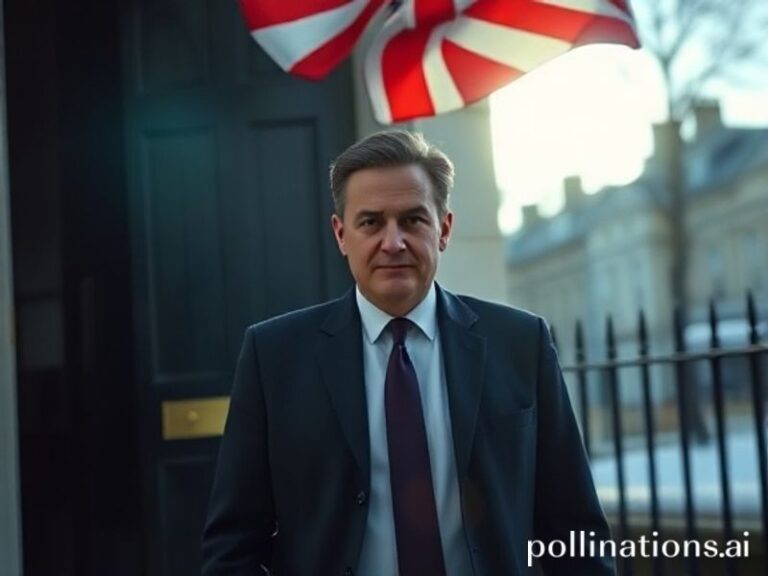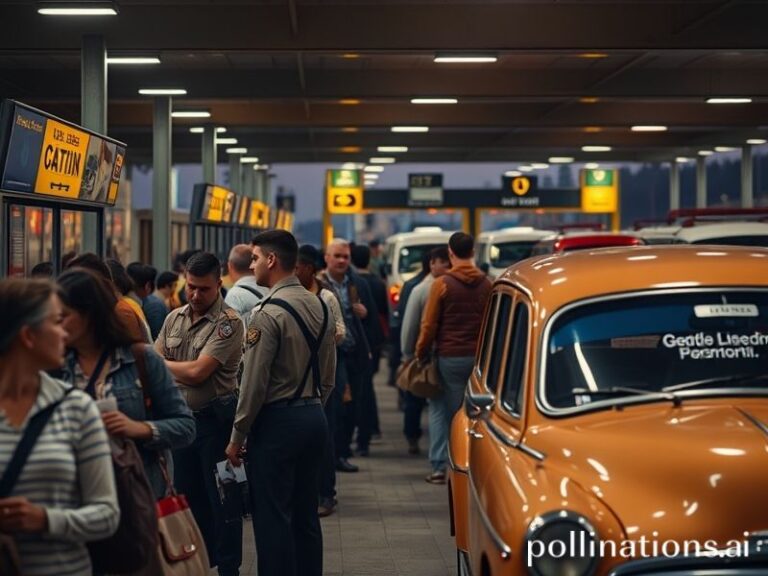Scotland vs Belarus: A 1-1 Metaphor for a World Running on Fumes and Whisky
Scotland vs Belarus: Two Cold Places, One Lukewarm Game, and the Entire Planet Pretending to Care
By Our Man in the Departure Lounge, somewhere between Glasgow and Minsk
Let us begin with the obvious: there are only so many ways two mid-table nations can disappoint their citizens on a Tuesday night, yet Scotland and Belarus have managed to invent a fresh variety. The fixture—World Cup qualifier, Group E, destiny on the line, yada yada—was less a football match than a geopolitical group-therapy session where everyone agreed the world is falling apart but nobody wanted to be the first to leave.
Globally, the game was broadcast from Inverness to Ulan Bator, which tells you less about the universal appeal of the beautiful game than about the desperation of streaming platforms to fill 90 minutes between mattress commercials. In a week when the Arctic registered its first rain-on-snow at the North Pole and crypto exchanges imploded faster than a soufflé in a wind tunnel, a 1–1 draw featuring a penalty that looked suspiciously like interpretive dance felt almost soothing. Apocalypse now? Fine, but first let’s watch two right-backs blame each other for a throw-in.
From an international-relations standpoint, the match was a masterclass in soft-power karaoke. Scotland arrived draped in tartan diplomacy, brandishing whisky exports and a freshly signed hydrogen deal with Germany—because nothing says “future” like piping volatile gas under the North Sea in the hope Berlin keeps the lights on. Belarus, meanwhile, countered with its own brand of soft power: the firm suggestion that any visiting journalists who asked about human rights might miss their return flights. (Spoiler: they didn’t miss them, but the Wi-Fi at Minsk International did mysteriously develop a sense of humour and reroute every search for “election observers” to a 404 page featuring a smiling tractor.)
The broader significance, if we must, lies in how the game served as a Rorschach test for whichever anxious superpower was watching. Washington saw a NATO frontier club versus a sanctioned satellite and quietly tallied how many Belarusian players had third-cousins in the KHL. Beijing streamed it on iQIYI with a 30-second delay “for technical reasons” and noted that every Scottish midfielder now wears boots made in Guangdong. Moscow simply DVR’d the match, assuming correctly that any highlights worth seeing would later appear on Telegram next to ads for counterfeit passports.
Meanwhile, global markets treated the fixture like a weather balloon for risk sentiment. Bookmakers in Manila shortened odds on a Belarusian protest during the 73rd minute (it didn’t happen; the protestors were stuck in traffic). Grain futures in Chicago ticked up on rumours that Scotland’s lone goal celebration involved a pitch-side banner reading “Wheat Is People Too.” Analysts in Dubai built PowerPoints titled “Scottish Wind Turbine Valuations Post-Set-Piece Inefficiency.” Somewhere, a quant in Zürich trained an AI model to correlate missed clearances with sovereign credit ratings; the algorithm promptly shorted both nations and asked for hazard pay.
On the pitch itself, the football was precisely as forgettable as international law expects. Scotland scored early through a header that bounced in slow motion, as though the ball too was reconsidering its life choices. Belarus equalised from a free kick awarded when the referee remembered he’d promised his nephew a souvenir foul. The remaining 70 minutes resembled an existential Beckett play performed by people wearing shin guards: long balls into nothingness, hopeful shouts echoing off empty seats, and the slow dawning realisation that neither side could reliably string three passes without invoking divine intervention.
Still, the draw leaves Scotland second in the group, Belarus clinging to mathematical optimism, and the rest of us free to pretend this matters. In a world where glaciers file HR complaints and billionaires race to leave the planet, watching 22 strangers chase leather under floodlights is the closest we get to collective denial that still fits into a work-night schedule.
So here’s to Scotland and Belarus: two nations separated by language, politics, and average January temperature, united in their heroic ability to make a nil-nil feel like progress. The final whistle blew, the players swapped shirts destined for charity auctions, and the global audience switched over to a cooking show where nobody keeps score. Somewhere, a Ukrainian commentator sighed, a Senegalese scout updated his spreadsheet, and a lone bagpiper on the Moray Firth played a lament that sounded suspiciously like a ringtone.
The world spins on, slightly dizzier than before. And somewhere in the VIP lounge, a FIFA delegate pockets a commemorative whisky miniature and wonders why all victories taste like watered-down regret. Cheers.







